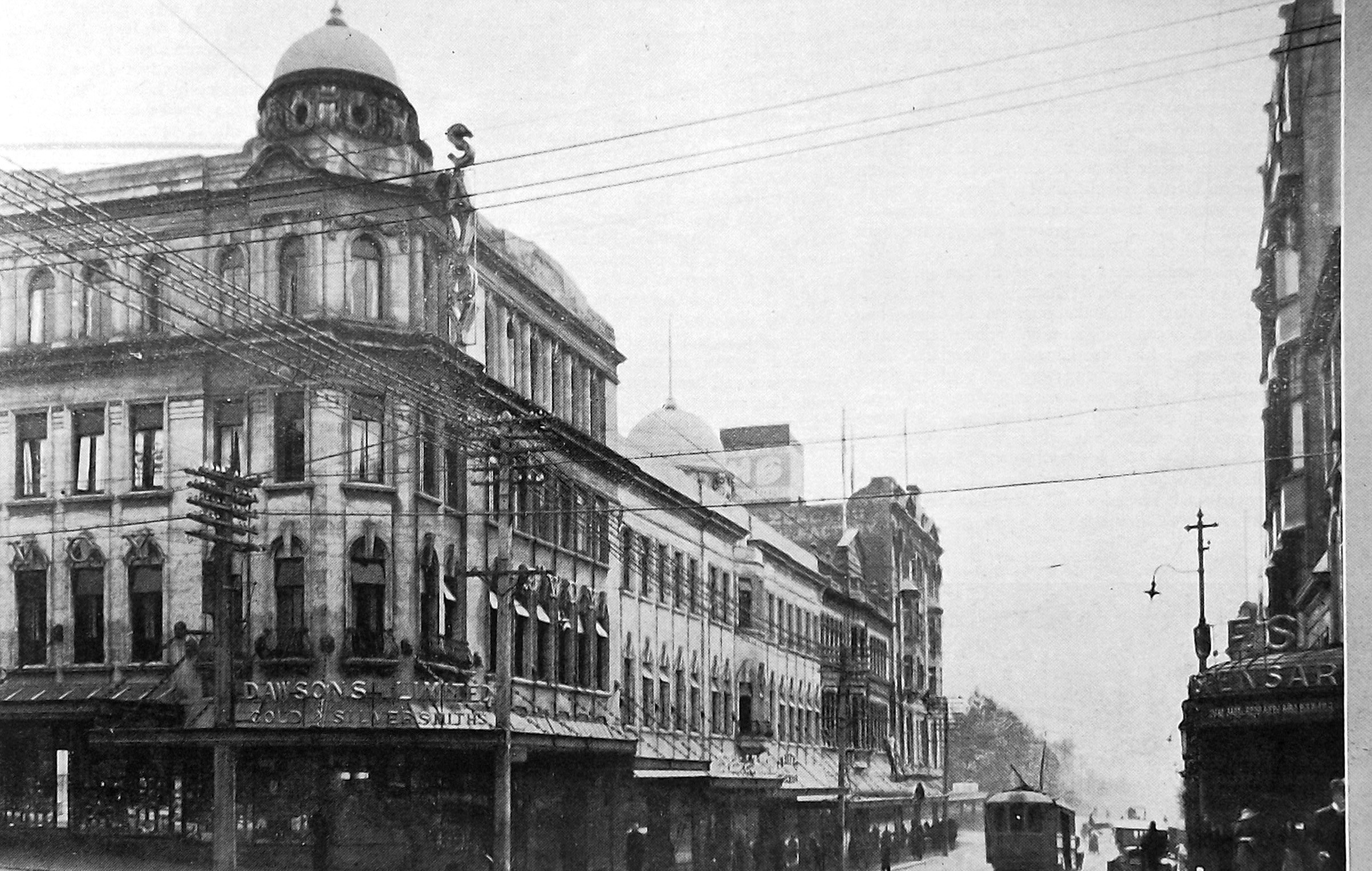

On Saturday evening the Tudor Hall was comfortably filled by a gay and responsive party of pleasure-seekers who showed keen appreciation of the feast of melody offered by the talented combination. Throughout an evening that was typical of the Tudor Hall the demands for encores were frequent and insistent. Nothing but praise was heard for an orchestra that was in every sense of the expression part of the evening.
Carpenters on top of the world
Even the most casual observer in Dunedin cannot help being struck at the present time with the unprecedented amount of building construction and alteration work that is being carried out in the city and suburbs. For months Dunedin has been the Mecca of carpenters, and all tradesmen whose calling is associated with the building trade, and the result is amply apparent in the sound of busy hammers and saws that greets the passer-by in any street.
Although the big Exhibition has naturally attracted the majority of the workmen, its presence is accompanied by a general building boom, a noticeable feature of which is the number of additions which are being made to houses in all parts of Dunedin. During the month of October permits were issued by the City Council authorities for constructional work to the value of £50,808. This sum does not include any single amount of more than £3000 outside of Exhibition building work, and is mostly made up by a host of dwelling additions and alterations.
A comparison is afforded by a glimpse of the figures for October, 1924, which total £36,786. Permits for work at the Exhibition to the total value of £11,356 were issued during last month. These included the grand stand (£3200), main gates (£2368), tea-rooms (£3630), and band stand (£755). In the city and suburbs permits were issued for 29 dwellings, four business houses, 13 garages, and 23 alterations and additions mainly to private houses. This means that during the month work was commenced on 69 separate buildings in various areas. Truly, the little army of carpenters at present in Dunedin is a very busy one.
Feminism defined
Miss Rose Macaulay states that "Feminism is based on respect for humanity, for human beings as individuals, irrespective of sex. It aims at the development of the individual nature, gifts, temperament, and capacities of each person, along whatever lines best suit that person. It aims at the growth of citizenship, of the sense of corporate and social responsibility, in every human being. It is not disrepect for man; it is respect for every man, woman, and child. Not that kind of respect which describes the wife as 'the better half'; she may equally likely be the better half or the worse, according to the respective natures of each; but that respect which human beings must, in the teeth of immense difficulties, try to accord on another, if civilisation is to advance at all; that respect which recognises all human nature as a complex, exciting, and difficult thing, full of terrifying potentialities for good and evil, a thing which includes sex but transcends it, so that our aim should not be to be womanly or manly, to be, in brief, sexed (we can all be that, heaven help us, without trying), but to be the finst kind of human being."
— ODT, 9.11.1925 (Compiled by Peter Dowden)














